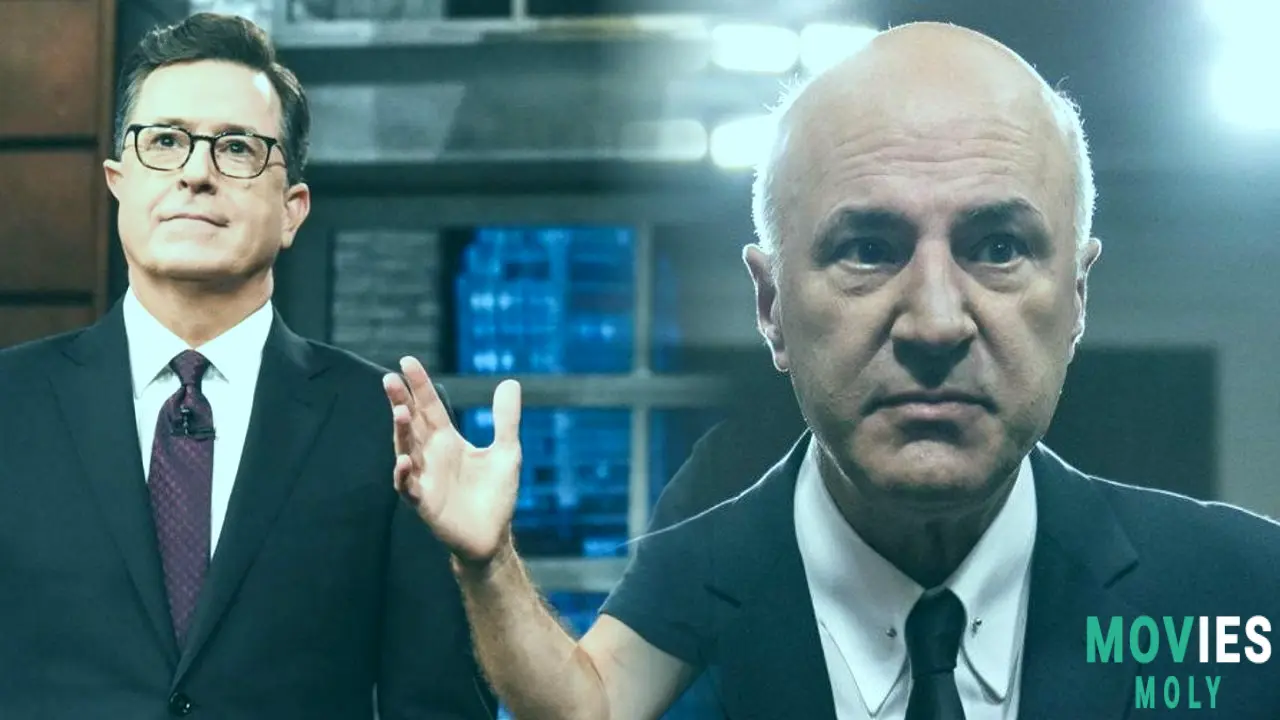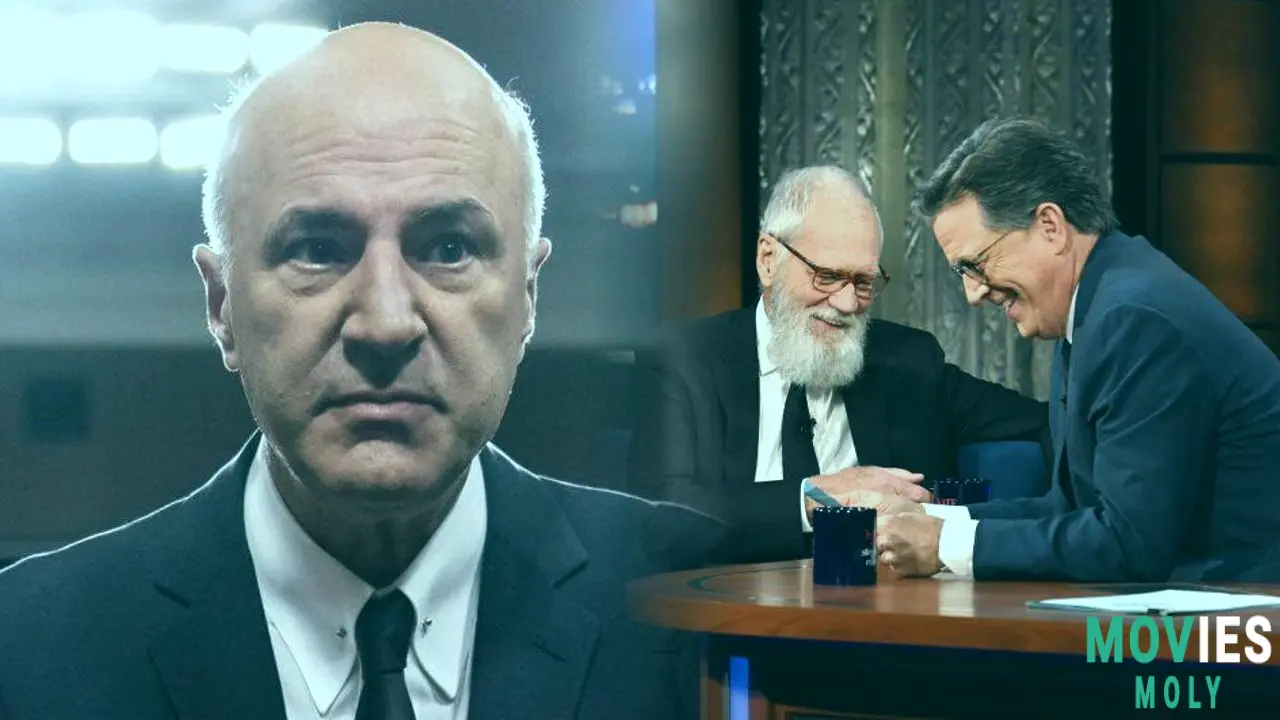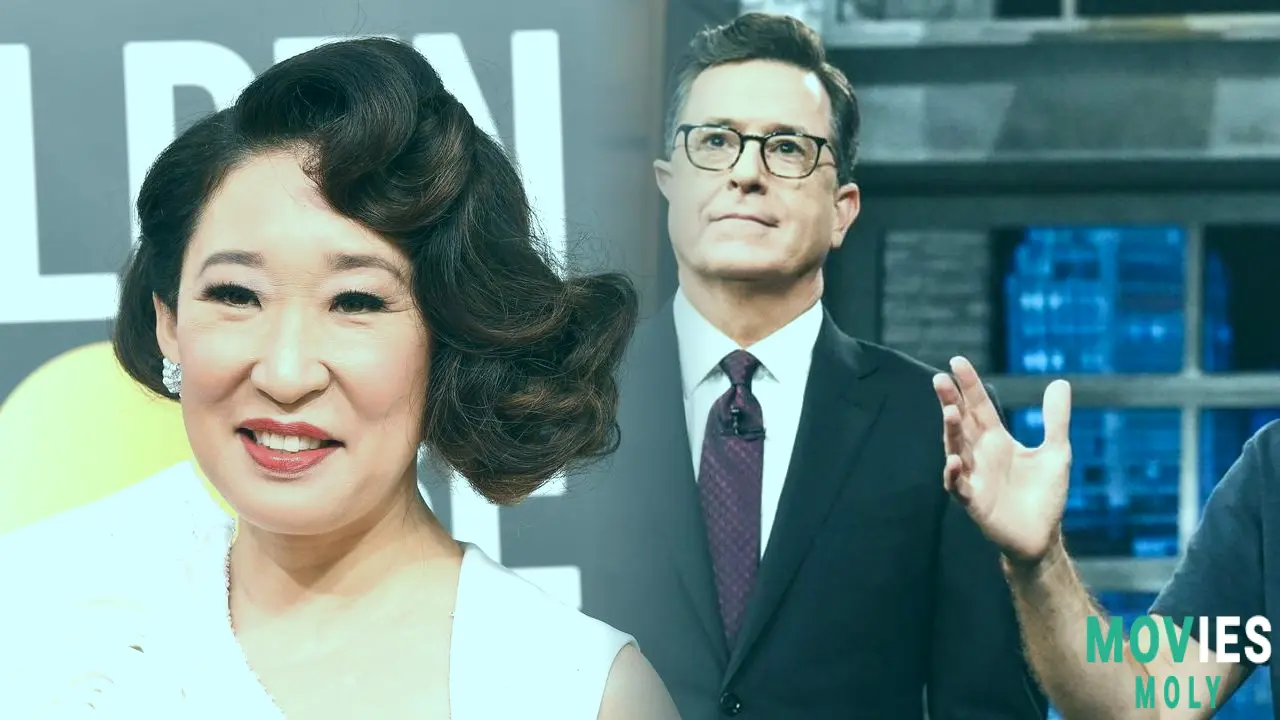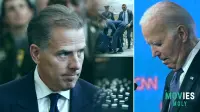The news that The Late Show with Stephen Colbert will stop in May 2026 has stirred a lot of discussion. CBS and its parent company, Paramount Global, said they made the choice for financial reasons. But a lot of people, like legal analyst and The View co-host Sunny Hostin, don't agree with this argument. Hostin has said that the cancellation is a serious threat to free speech and could possibly lead to the "dismantling of our Constitution."
The Shockwaves That Followed the Cancellation of Stephen Colbert's Late ShowMany people were surprised when CBS decided to terminate The Late Show, which has been on the air for more than 30 years and is the most popular late-night show right now. The network said the decision was "purely a financial one against a difficult backdrop in late night," making it clear that it had nothing to do with the show's substance or performance. People are curious about the timing of this announcement, though. It happened only a few days after Colbert openly blasted Paramount for resolving a $16 million lawsuit with Donald Trump.
Colbert, who is known for his caustic political commentary, reacted to the news with a mix of humor and defiance. He made fun of "cancel culture" going too far and told Donald Trump that he would speak "unvarnished truth to power" for the rest of his show's run. Trump, on the other hand, was happy with the news on Truth Social. He said he "absolutely loves that Colbert got fired" and thought that other late-night hosts, like Jimmy Kimmel, would follow suit.
Sunny Hostin's Unprecedented Concerns About the Constitution

Sunny Hostin, who used to be a federal prosecutor and now writes about the law, provided a fresh and serious point of view to the conversation on The View. She said that the cancellation was directly tied to possible dangers to American democracy and constitutional rights. Hostin said that if the cancellation was done for political reasons, it may mean the "dismantling of our democracy" and the "dismantling of our Constitution." She underlined how important the First Amendment is, saying that freedom of expression and freedom of the press are two of the most important ways to speak truth to power.
Hostin's point goes beyond only money issues. She asked how a top-rated program could be canceled just because it was too expensive, which is something Colbert himself has said. She said that if comedians and critics are being silenced, it means that the Constitution's essential values are under attack in a bigger way. This point of view stresses the importance of media, especially late-night comedy, in keeping those in power in check and encouraging public debate.
Sunny Hostin says, "If Stephen Colbert's Late Show is canceled, it could mean the end of our Constitution." A scary thought for free speech. #SunnyHostin #ColbertCancellation
Putting it all together: free speech, media mergers, and political power

There is a lot of controversy over Colbert's cancellation, and it has a lot to do with Paramount Global's proposed $8 billion merger with Skydance Media. The current government needs the Federal Communications Commission (FCC) to approve this merger. Just a few days before the cancellation notice, Colbert publicly blasted Paramount's $16 million settlement with Donald Trump over an interview on 60 Minutes.
Jon Stewart, a longtime friend and former coworker of Colbert's, also spoke up and dismissed the strictly financial argument. Stewart said that Paramount "lost the benefit of the doubt" after the payment, which he and others have called a "extortion fee" to make Trump happy and help the merger go through. He questioned the logic of companies shutting down shows that add a lot of value to their business, saying that making "flavorless gruel" to avoid political scrutiny would eventually cause people to stop watching.
Is Colbert's departure really about money, or is it, as Sunny Hostin says, a bigger threat to our democratic foundations? The host of The View sounds the alarm. #LateShow #FreeSpeech
How Hostin's opinion is similar to or different from those of other commentators

Hostin's warning concerning the Constitution is very strong, although other well-known people share her worries about political reasons. Sandra Oh said on The Late Show that she was angry and wanted "a plague on both your houses" for CBS and Paramount. She linked the cancellation to larger concerns of culture and free speech. Jon Stewart's criticism of corporate "fear and pre-compliance" also fits with the premise that the cancellation was not solely a financial decision.
Other hosts on The View, like Joy Behar, also said that politics had something to do with it and stressed how important comedians are in a democracy. Whoopi Goldberg said she supported Colbert and anticipated things may "shake out" in ways that were not expected. She held back her "own thoughts" so as not to give "them ideas." This common doubt from different media figures implies that they are all worried about what this high-profile cancellation could mean.
On the other hand, other people, like CBS Mornings co-host Tony Dokoupil, have only weakly pushed back against the idea that politics is to blame, saying that the late-night business has transformed and become "way more one-sided."
The Bigger Picture for Late-Night and Political Talk
The termination of The Late Show with Stephen Colbert, especially in this situation, raises a lot of issues about the future of late-night TV and its role in political commentary. The industry has witnessed a drop in ad revenue because people, especially young men, are watching less on TV and more on streaming services. Networks may easily explain this financial pressure.
But Hostin's and Stewart's arguments point to a more worrying trend: that media companies would be willing to give up journalistic independence and critical voices in order to make agreements with businesses or make politicians happy. The fact that the FCC approved the Paramount-Skydance merger just days after Colbert's show was terminated makes these concerns even stronger. Some people have seen FCC Chairman Brendan Carr's statement applauding Skydance's promise to "a diversity of viewpoints from across the political and ideological spectrum" and to "root out the bias that has undermined trust in the national news media" as a sign of political interference.
Sunny Hostin thinks that after Stephen Colbert's show stops, the future of media independence will be very bad. We ought to pay attention to her constitutional concerns. #TheView #MediaFreedom
What Experts Think About Hostin's Claims
The Writers Guild of America wants New York's attorney general to look into whether Colbert's cancellation is a "bribe" to get the Trump administration's approval for a merger by giving up free expression. Jeff Cohen, who helped start RootsAction and FAIR, agreed and said that Paramount might take down additional shows that are critical of Trump as part of a bargain to get better merger terms.
The argument over the real reasons for the termination brings up a bigger issue: the independence of the media and the possibility that corporate interests could affect journalistic judgments. As Hostin said, if the cancelation is based on politics, it goes against the basic ideas of American democracy and free speech.
Sunny Hostin of "The View" makes the dots: Colbert's cancelation isn't simply a news story, it's a "dismantling of our Constitution." A strong declaration. #SunnyHostin #Colbert
The Financial vs. Political Debate: What Really Led to the Cancellation?
CBS and Paramount say the show was canceled because it lost $40 million to $50 million a year, but the timing of the announcement is still a big matter of disagreement. Critics say that a top-rated show that was losing money would usually be handled differently, maybe by cutting the budget instead of canceling it, unless there were other reasons.
What The View Does to Change People's Minds
The View is a big part of forming public opinion because it gives people a place to talk about politics in different ways. Sunny Hostin's passionate words about the Colbert cancelation bring these complicated concerns to a lot of people, making them want to go deeper than just the surface-level explanations. Her legal expertise gives her cautions about constitutional consequences more weight, which makes viewers think about how these media choices affect society as a whole.
Looking at how the Paramount-Skydance merger will affect things
The merger between Paramount and Skydance, which has already been approved, has been the main point of contention. Many people think that the merger's approval came at the right time, after the settlement with Trump and the termination of Colbert's show, which shows a link between business interests and political power. This case shows how big media mergers could hurt journalistic freedom and the variety of voices in the media.
Late-Night TV's Future Landscape
The end of The Late Show with Stephen Colbert could mean that late-night TV is about to change. The traditional business is having trouble since advertising revenue is going down and people are switching to streaming. However, the argument started by Hostin and others shows that the future of late-night may also depend on how ready networks are to stick by their stars when politicians put pressure on them, or else they risk being perceived as putting corporate interests ahead of free expression.
The argument gets stronger: Some people say it's because of money, but Sunny Hostin says it's because of a constitutional crisis that happened after Stephen Colbert's Late Show was canceled. What do you think? #SunnyHostin #Colbert






